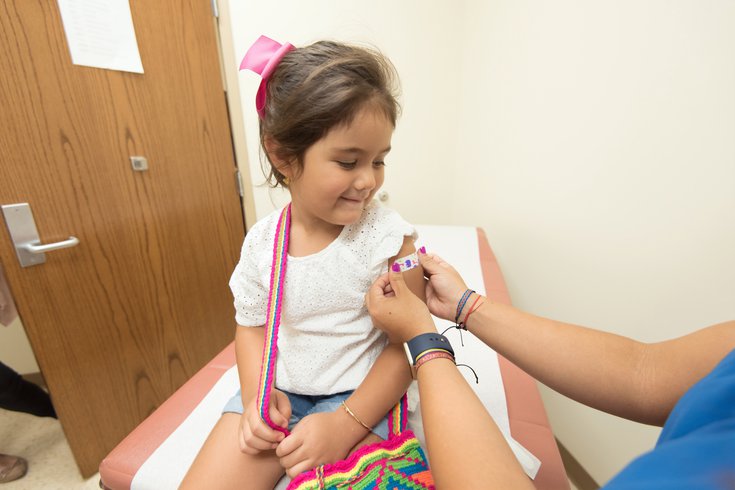
May 13, 2020
 CDC/Unsplash
CDC/Unsplash
Routine vaccines have declined during the COVID-19 crisis which could lead to community outbreaks of preventable diseases like measles.
The number of routine childhood vaccinations administered in the United States has dropped significantly since the COVID-19 crisis began, leaving pediatricians concerned about the longterm consequences.
Routine vaccinations fell by 2.5 million doses between March 13 – when President Donald Trump declared a national emergency – and April 19, according to a study conducted by the U.S. Centers for Disease Control and Prevention.
"If children are not vaccinated, diseases will re-emerge," said Dr. Lisa Biggs, associate chief medical officer of the Children's Hospital of Philadelphia Care Network. "We have seen this most recently with measles outbreaks in different areas of the country."
Biggs was not involved in the study, which compared vaccine orders made through the Vaccine for Children Program between Jan. 7 and April 21 to orders made during the same time period last year. Researchers also used data from the Vaccine Safety Datalink. Flu shots were not included in the analysis.
Though vaccinations dropped among all children, researchers found that the decline was less dramatic among those under the age of two, when the initial doses of many critical vaccines are administered.
The declines may stem from parents being afraid to take their children to the pediatrician for preventive care amid the coronavirus pandemic, according to STAT. Plus, some pediatric practices are limiting wellness appointments during the health crisis.
Whatever the reason, it could result in some unfortunate consequences.
"The identified declines in routine pediatric vaccine ordering and doses administered might indicate that U.S. children and their communities face increased risks for outbreaks of vaccine-preventable diseases," the authors wrote.
As social distancing requirements are relaxed, children will become more vulnerable to these preventable diseases, they noted.
Last year's measles outbreaks already had public health officials worried that vaccine hesitancy could lead to a resurgence of the deadly virus. Researchers found that measles vaccines dropped by 250,000 doses.
And mumps outbreaks have popped up at various college campuses, including Temple University, in recent years.
"Immunizations provide critical protection against dangerous diseases," Biggs said. "Immunizations protect not just your child, but also our most vulnerable community neighbors. Many people no longer think about vaccine-preventable diseases. This is due to the success of vaccines that we do not worry as much as generations before us. This can change, however, if vaccination rates fall."
Immunization rates have decreased an estimated 20-70% across the United States since the pandemic began, Biggs said. The rates vary based on the specific vaccine, data source and patient population.
CHOP primary care practices have seen a decline of approximately 10-15%, she said.
"This is much better than many reports, but we still encourage parents to bring children in for well visits and vaccinations," Biggs said. "Pediatricians and pediatric practices have made quick changes to ensure that you and your child will be safe in our offices. We want you to be safe and we want be safe."
Biggs emphasized that well visits are important for more than vaccines. They enable health care providers to evaluate the overall health of children and usually include an assessments of growth, development, nutrition and behavior. Various concerns – from child care to safety to schooling – can be discussed.
CHOP primary care practices screen all patients for COVID symptoms and exposure, Biggs said. They also separate all well visits from sick visits, and provide video visits when appropriate. Cleaning protocols have been enhanced, and parents and children are encouraged to wait in cars until an exam room is available.
Staffers must wear wear masks at all times and other protection when needed. Parents and children are provided masks if needed. Waiting room furniture has been arranged to encourage people to maintain appropriate physical distance, she said.
"All of our precautions are designed with guidance from the CDC, health departments and our own infection control experts to reduce your risk of exposure," Biggs said.